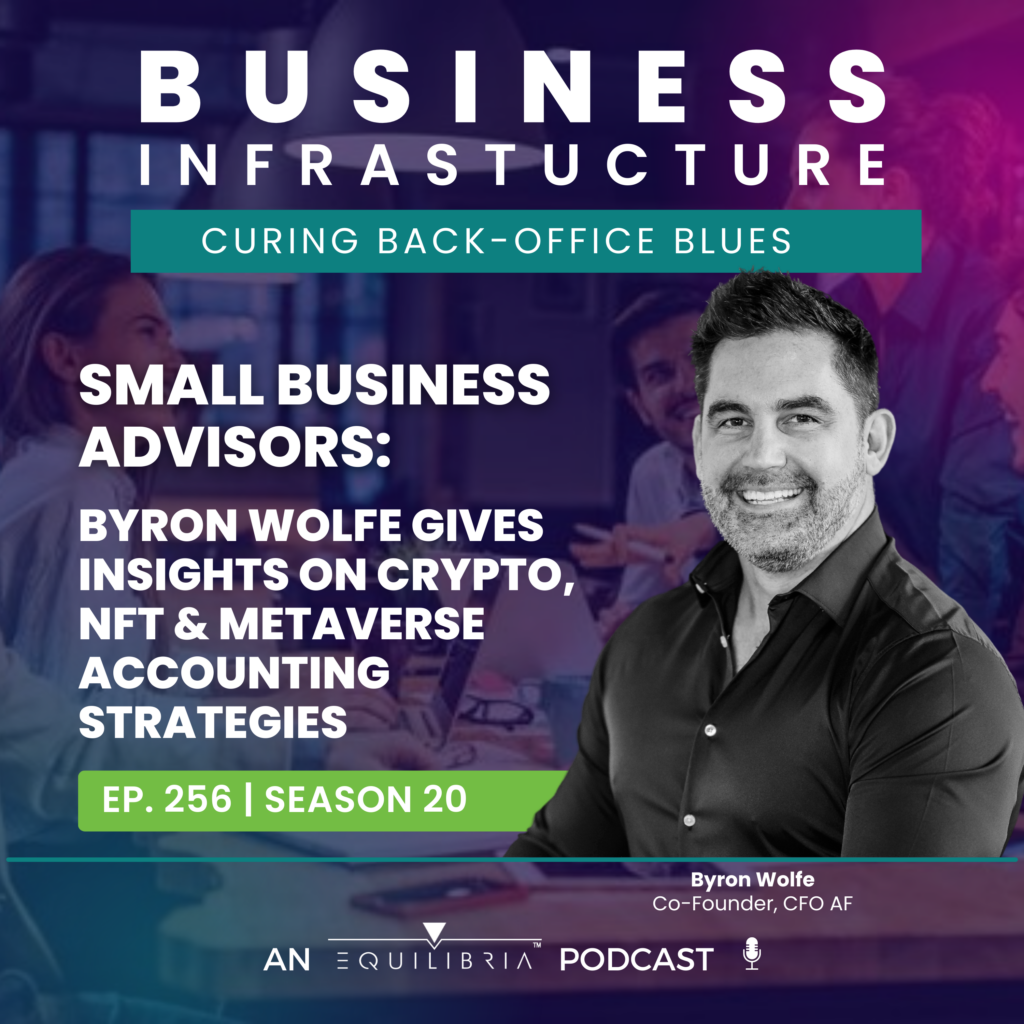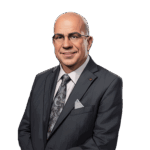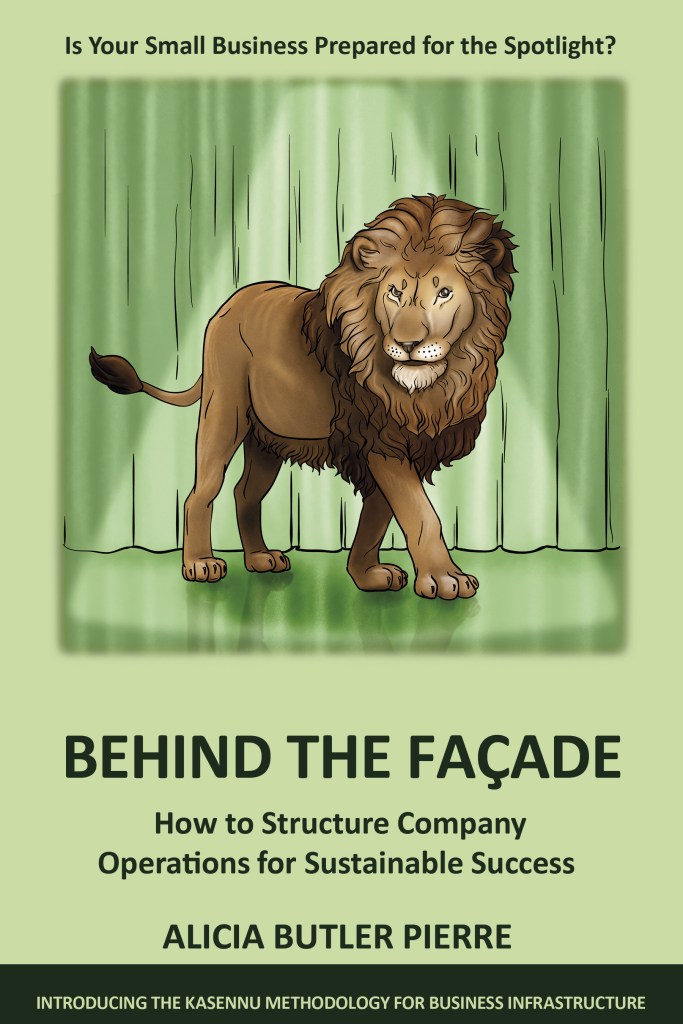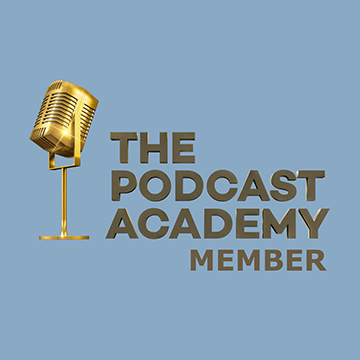Transcript
Does the thought of accounting and doing your business’ bookkeeping make you cringe? Do you have a five-year strategic growth plan in place with a financial roadmap to make sure your business gets there? Well after today’s episode, you’re guaranteed to not only become a believer in the necessity of both accounting and finance, but you’ll also discover how to gain a competitive edge by leveraging fintech.
This episode is underwritten by Equilibria, Inc. the company behind this podcast where we design scale-ready business infrastructure for fast-growing small businesses.
It’s Season 20 here on the Business Infrastructure podcast – the show where we share operational tips, strategies, and tactics to help you cure any back-office blues you might be experiencing. I’m Alicia Butler Pierre and this season features 12 small business advisors, each with a unique skillset they’ll share with you.
Prepare to be wowed by our next featured advisor. He’s considered one of the first experts in crypto tax strategy in the U.S. But that’s not all, he’s also an expert in NFT and Metaverse. Not only will he explain what all of this means, but he’ll also tell you how your business can make money in these spaces too!
This is Episode 256 – Byron Wolfe Gives Insights on Crypto, NFT & Metaverse Accounting Strategies
I’m Byron Wolfe. We are in Phoenix, Arizona. I’m a licensed CPA. I am one of the founders of CFO-AF, where we do fractional CFO services for small businesses in the $40 million and under range.
I’m one of those weird people that enjoy working with my wife,. So, it started with me and my wife. So she’s the other, Co-Founder of CFO-AF. We are very strange in that we really like working together.
That’s amazing in and of itself! Not everyone can work alongside their significant other. Another “strange” or interesting thing about Byron is that he has expertise in both accounting and finance. How did that happen?

I’ve worked in a number of industries, and so I’ve learned a lot, you know, throughout, that process. The more I learn, the more I realize I don’t know as much as I thought I did.
I was very lucky in that my mom owned a CPA firm. And so, growing up, I was always around it. I was in the office at the firm and learned very early how important finances were. I was one of those very dorky kids that could actually balance my checkbook at a very young age. which I know they don’t even have checkbooks anymore. So I just aged myself.
But, when I got the actual CPA, I learned very quickly that I loved interacting with people, more than I did the actual, CPA work or the bookkeeping. I could do it, I’m good at it, but I really love interacting with people, getting into their business, getting into their head space, figuring out what their issues are, and helping them to solve them from a financial perspective. so that’s kind of how I went from CPA to the business owner too, you know, starting the CFO-AF, which is the fractional CFO tax services.

CFO AF…now you might be wondering what the name of Byron’s company stands for. CFO stands for Chief Financial Officer and the AF, well…since we keep things clean on this show, let’s just say the F in AF is a four-letter word that rhymes with duck.
We get people that will say does that stand for like accounting and finance? And I’m like, do you want it to? Cause it can.
Okay, well that’s clever, right? AF could stand for accounting and finance. Which, when you think of it are two sides of the money management coin. The way I see it, accounting and finance are like Janus, the Roman god of beginnings and endings. He’s depicted as being double-headed with one head looking to the past and the other
looking toward the future. I asked Byron if this was a fair comparison to accountants and financial folks.

I think it is.
If you’re talking very strictly in the accountant, or like the accounting-only industry, I think that that’s fair. You know, most CPAs are very looking at the past to do what I need to do immediately. Accounting is looking at what you’ve done and putting it in the right place so that we know what the budgets look like, and things of that nature.
Finance is really kind of dealing with what are our immediate needs and what are our needs moving forward. So I feel like where they kind of overlap is in the immediate, like, what are we doing today? What are our needs today? What are we solving today? Which I mean, for a lot of people that have been in small business comes down to one of the biggest frustrations of like, am I going to be able to afford payroll, right?
If you’ve ever been in business, that’s a scary moment where you’re thinking like, Wow, I got all these people that depend on me. If I don’t come through, like they can’t pay their rent, or they, maybe their kids don’t eat. So that’s stressful. And so, the accounting is looking at the past. What have we done how do we need to present it today? Finance is really kind of looking at like, what are our needs today, and how are we going to meet those in the future?
I’m hoping it’s a fair assumption to say that every small business owner understands the importance of having an accountant or CPA, especially when it comes to planning for and paying taxes. But many entrepreneurs are unaware of the benefits of also working with a CFO.
The beauty of the CFO space, is we come in and we’re able, to span that whole gap. So, we look at what happened in the past, we create the present, what’s going on today, let’s look at the true financial picture of what we have today so that we can set the budgets we know what we can spend moving forward.
We know what the forecasts are going to look like. So, we can say, “Okay, in a year, two years, five years, 10 years down the road, this is roughly what this business is going to look like so that we can make decisions in the present that are going to allow us to meet those goals, meet those forecasts that are looking towards the future.” So, there’s a lot more that goes into it other than just the kind of the past and the future. Cuz, we live in the present and the present’s the most important, right?

Right. Absolutely. Thank you for elaborating on that. And as you were describing what you all do at CFO-AF, one of the things I noticed by looking at your company’s website is that you all provide financial operations services. What exactly does that mean? Because I know you also have experience. Working as A COO in some different companies as well, right?
I do. Yeah. I feel like the COO and the CFO are very closely combined. In fact, recent legislation has made the COO and the CFO a very blurred line. Cuz to be a really good operations person, you really need to understand the financial controls and the financial limitations, the rules, and laws that come up from that. Same thing with the CFO.
They need to really understand what’s happening in the operations so that they can present the data that needs to be presented in the way it needs to be presented but also anticipate the needs of the operations and make sure that those are met. And so, in layman’s terms, that really comes down to like what the cash flow is, right? Cuz a business lives or dies by the cash that’s available. And if you can’t manage the cash flow, it doesn’t matter how profitable you are.

If you’re one of those entrepreneurs or business owners that comes up and you showing amazing profit, but you’ve got a $30 grand payroll that’s coming up this week and you don’t have $30 grand in the bank, that’s a bad spot to be. So, it’s very important that the operations and the finance are working together so that we’re not investing money in an area where maybe we need that cash for an immediate need.
But on the other side, we don’t want to have so much cash sitting around that we’re hindering the growth of the organization. So, the COO CFO is a very overlapped position in my opinion. When we talk about financial management and financial operations, if you’re familiar with EOS at all, like there’s a concept that says there are three basic pieces of any organization.
There’s marketing, there are operations, there’s finance, sales, and whatever brings the money in, right? There are operations that are essentially running the company, taking those sales, and turning those into revenue profit. Cash flow. And then there’s finance that’s taking all those things and making sure that we’re holding what we need to hold for immediate needs and future needs and investing or using that for R&D dollars to improve the business.
So to me, that financial operation side is what’s really needed by a lot of entrepreneurs. Cuz the majority of the ones that we work with, they’re amazing at maybe one or two out of those three. But at least one of ’em is lacking. And unfortunately, it’s the boring one.
Now that’s really interesting to me because Byron described finance as the “boring one.” I’m often told that operations are boring. So, where does that leave us – yep, you guessed it…most people want to spend their time, effort, energy, and overall resources on marketing. It’s something we talk about all the time here on the Business Infrastructure podcast. That means people like Byron and I have to work that much harder to get operations and finance equal attention (and love) from other small business owners.

If they’re an amazing marketer and they’re pretty good at operations, if we can step in and give them some tools and some processes, some assistance, and the finance, then we know that that’s gonna have the biggest impact on them. Because I get it. I, I love it. Like, I absolutely love it. It’s one of the big reasons that I’m different from a lot of CFOs is I enjoy it and I can make something that, you know, to a lot of people is fairly boring or monotonous. I can make it kind of fun.
Yep, we’re definitely on the same wavelength, Byron. You have to make the boring stuff fun! With that being said, Byron mentioned earlier that his company works with small businesses generating $40 million USD or less. I wondered if there was a specific reason why he chose that number and whether there are specific industries he specializes in.
The industry doesn’t matter to us. So we know that if we’re going to work with a client if they’re seeking us out, it’s because they have realized the fact that the finances are what they need. And so, when they come to us and they say, “Hey, I’m amazing at marketing, I’m amazing at operations, I’m a visionary and I can create these great things and I have a great integrator that’s helping me to make it happen.
But I don’t know what our cash position is, or I don’t know what our true financial snapshot is.” I know that they’re the expert in their industry, right? And so for me, I am the expert in the financial side of any business because I’m very good at it. And the majority of companies all have roughly the same problems. You know, just explain it in a different way and specific to their industry.
But they break down to pretty much the same problem. So, we can come in and we can be the expert in the financial piece and give them the map, the game plan, the scorecard whatever you want to call it. We give them that baseline that allows them to start building upon that. And then they can set goals. They understand what forecasts are, and they start to live within a budget, so they know where they’re spending it, and where that money’s going.
They start to have good cash flow management. So those are super stressful, am I gonna be able to meet payroll? Am I gonna be able to cover the rent? Those things become in the past because we’ve already anticipated what needs to happen to make sure that we’re meeting those obligations and we’re having the growth that we want to have.
The reason that we’re $40 million and under is $40 million and under is technically a small business, by SBA standards. And so, a lot of people would say, that’s huge! And it is but by definition, that’s a small business. They haven’t gone public, or they haven’t gone private, which, you know when they say gone private, it’s essentially, we’ve made the decision to expand privately held, but we’re going into that mid-cap or large-cap organization cuz we don’t want to go public.
We don’t wanna be on the stock exchange. And so once you go into that, you become a lot less nimble. They don’t get to make fast decisions. They don’t live or die, you know, by the checkbook or what’s in the bank balance. They’ve essentially, you know this, you’re an operation.
Did you hear what Byron just said? At a certain point of revenue growth, your business advances from being a lifestyle venture to an operation.
They’ve created the SOPs.
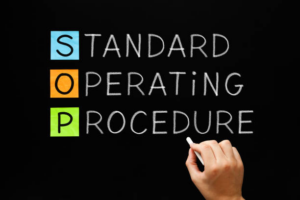
Oh gosh, yes!
They have it outlined, right and so generally, they need some guidance. But I love a growing business. I love a business that’s like, still has that energy, that fire, that drive to do something really amazing. And I’m not saying it doesn’t exist in the mid-cap or the large caps, but you don’t have that super excited, this is my everything. This is my baby.
And…small businesses are typically quicker and more eager to try new, sometimes radical things. Things like cryptocurrency, NFTs, and metaverse. And Byron is game for all of it! I wondered if he introduces his clients to this high tech or do they approach him about it first.
It’s a combination of both. So, I have learned that entrepreneurs or small business owners, they’re always looking for an edge. like what’s on the up and coming, what’s new? What can I use to get an extra edge? and so for a lot of these entrepreneurs, these small business owners, having that crypto connection can seem very interesting. It’s a place to park some money and hopefully, make a really good return.
It’s a way to do something different that maybe isn’t done in the industry. If somebody is heavy into crypto and they want to pay for something, in crypto, there are not a lot of options out there. So, if you are the company that allows somebody to pay in crypto and the majority of the industry doesn’t, that can be a customer that you’re not going to get in the other way.
With NFTs, it can be a really good way to give somebody very limited access to something. It makes them feel special, so to speak, because it’s a one-of-a-kind, even if there are multiple one-of-a-kind, it’s still a limited run. So, they have that sense of belonging to a community, or being a chosen group of people because they’ve accessed that small-knit group of NFT owners. The NFT can be used for transfers. So, a lot of people will use it for title transfers or ownership of this, ownership of that. it’s a very easy way to take a large item and break it down into smaller components.
Okay, this is some cutting-edge stuff. We’re about to take a break and when we come back Byron is going to explain more about NFTs and ownership as well as accounting strategies for NFTs and crypto. He’ll even share ideas for how you can make money in
the Metaverse. All that and more coming up after the break.
How do you know if your business is growing faster than you can keep up with? If you have trouble keeping up with things like deliveries and projects. Your customers are angry, team turnover is high, and the complaints are piling up. Where can you go for relief? How can you save your business from the chaos of unmanageable, fast growth?
It might be time to build business infrastructure. Business infrastructure is a system for linking the people, processes, tools, and technologies that act as the heartbeat of your back-office operations. It gives your fast-growing small business a stable foundation to not only continue growing but to scale in a profitable, sustainable, and repeatable way.
That’s why if you want a business that can consistently operate without your daily presence, then the Smooth Operator course is for you. It’s an online introductory course on business infrastructure that can provide you with proven tools, tactics, and techniques to calm the chaos and restore order. Go to SmoothOperator.courses to learn more. That’s SmoothOperator.courses.
We’re back and before the break Byron Wolfe, co-Founder of CFO AF was starting to drop knowledge about NFTs, crypto, the Metaverse. If it all sounds like some futuristic stuff – it is! But that’s what makes Byron so different as a CPA, CFO, and COO. He’s on the cutting edge of all of it and wants to educate you about using this FinTech for things like accounting strategies and shared ownership. Here’s more on that from Byron…
So, there’s shared ownership, the DAO, which I know we didn’t really talk much about the DAO, but, the DAO is a great, system of multiple people coming together to either invest or purchase something that they all benefit from. But the decisions are made by the group, so it’s not one person leading it. It’s made by the group, which is a great system.
And the Metaverse is a great place to just kind of disappear. It’s a virtual land, so if you own it, you can go in and it’s kind of like playing a video game, I guess. But there’s social interaction. You can kind of be whoever you want to be. You can wear the latest, greatest shoes or clothes you want, in digital format.
You can drive, whatever you want to drive in the Metaverse. So, it’s a nice place to go interact without feeling like maybe you don’t belong, or maybe you know, that people aren’t going to accept you for whatever you stand for or whatever you look like, or anything of that nature. So it gives you a platform upon which you can really take a lot of those aspects away from it.
Be yourself in a digital format and interact with people that are also kind of in that space. and it expands your world if you’re stuck, you know, in your hometown, and you’re not able to kind of get away and go visit wherever. So you go experience things that you wouldn’t normally be able to experience, which is a really nice thing to do.
Okay, that all sounds cool, great, and wonderful, but as entrepreneurs and businesspeople, can we make money in the metaverse?

For the monetizing of that, it’s a great way to purchase land. It’s virtual land, but, you know, land is not being created anymore. As far as I know. The earth isn’t spitting out any more extra land. So it’s a finite resource, right but the virtual land can be created. There are ways to monetize that as far as like rent or having some kind of thing going on in your virtual land. Host meetings, virtual meetings, and virtual meetups. they just did a huge Justin Bieber, concert, in the Metaverse a couple of months back that was a huge win. People got to interact with Justin, you know, in a virtual format. It’s really neat. So, there’s a lot of cool stuff that’s coming out, you know, in crypto, in NFTs in the metaverse.
And so, businesses that are trying to stay on the cutting edge of what’s coming out, it’s a great place to be. most of what we do is, is we help them to find awareness in that we find where it connects to their business. But a big piece of it is making sure that they either own trade or do business in the correct format. So, the IRS has not been great about laws surrounding crypto, NFTs, and Metaverse. And so, we have to take a lot of things that are somewhat related and apply those to Crypto, NFTs, and the Metaverse. And so, real estate laws apply to Metaverse for a lot of things, but a lot of ’em don’t. The IRS does not treat the virtual property as real property. It treats it differently. And so, you need to know that going in.
Okay, so that makes sense. There is a way to make money in the metaverse and it sounds like Byron is an expert at helping people like us figure out how to make sure our business transactions are legal and tax compliant. But what about Non-Fungible Tokens or NFTs?

NFTs are considered real art. You need to know that yes, you paid a certain amount for an NFT, but that doesn’t denote its value. A work of art is only really worth what somebody’s willing to pay for it and what somebody’s willing to sell it for. Kind of the same thing with NFT. So even though there is some kind of standardization of NFT values, it’s not treated that way by the IRS.
And what about cryptocurrency?

Crypto’s another aspect. You know, they’ve said that every time, you do a transaction with crypto, it’s a taxable event but it depends on your structure. If you’re structured in a way that you’re specifically in the business of trading crypto or interacting in crypto, then it’s not. It’s treated more like an interaction within the business.
So, your crypto can essentially be treated almost like inventory. whereas if you own it individually, every time you do any transaction in crypto, it’s a taxable event, even if you’re just changing it from one crypto to another because that’s how somebody wants to get paid. It’s a taxable event from here to the next one, and then when you trade it over, it definitely has a big impact on what your tax liability is, because the laws are not very clear yet.
How I became crypto tax certified is I’ve taken multiple courses on this. I’ve learned how the IRS is dealing with it, and I’m in the pipeline, and any new legislation that comes out, I’m on the cutting edge of finding out what’s going on with the taxes, and the tax implications.
Well I’m wondering, Byron, if we can switch gears just a little bit, because I’d now like to talk about how you work with your clients, but from a business infrastructure perspective. And for those who are listening to this show for the first time, business infrastructure is simply a system for how you link your people, your processes, and your tools and technology so that not just growth, but scale can happen in a profitable, repeatable, sustainable way. So, in the people aspect, how do small businesses know when it’s time to bring a fractional CFO on board?
Well, by the time you figure out you need one, it’s too late. I think it’s very, very important that when you’re looking at your finances, you have a clear vision of where you’re at, and where you want to go. And so, if you are looking at your finances, and if you’re thinking, Wow, this is a hot mess! like, I need help desperately, that’s a really good side, or if you’re looking at it and you’re like, I don’t have confidence in this. Maybe you’ve run it through QuickBooks or Xero or any of these other ones, and maybe you’ve given it to a CPA that’s going to file your taxes, and they say, “Yeah, this is great information.”

You know, “We’ll plug it into our system and see what happens.” But you’re not getting anything that’s looking forward to. You’re not getting anything that says, “Hey, I should spend this on this, and if I spend this on this, then I’m going to have this result.” if you don’t have any of those things, then you really need to start looking at possibly having that fractional CFO advice. And there are a lot of people in this space, and I’m not saying that we’re the only one. I feel like I’m the best in this space, but I’m fairly biased, just a little…
Little bit.
But, you know, talk to anybody cuz there are all different levels. A lot of our clients we meet with on a weekly basis, we have clients that we take everything from their bookkeeping to their CFO. So we’re a full scale for them. we have some that we meet with once a month and all we’re doing is we’re taking their financials. We’re just making sure that they look good for what it is. Make sure there are no big red flags or yellow flags that stand out. We give them a scoreboard, which takes the major components of any business. we look at revenue, we look at profit, and we look at cash flow. And so based on those, we have multiple indicators by the business. And all we’re doing is we’re presenting them with a scoreboard that has three colors.

Green, yellow, red. Green is good. You’re doing great. Great job. Keep it up, pat on the back. Yellow, hey, we need a little work here. Let’s look at what we need to do to fix this. We’re going to talk about it. Red, this is an emergency. We gotta fix this. Let’s get on this, let’s make it happen now. And so, we look at those things in the immediate, and then we look at what we’re forecasting for the next 30 days. What do we need to do in the next 30 days? What do we need to do next quarter? What do we need to do next year? And then all of those things that we’re looking at that need to happen, it’s based on our five-year forecast.
So, we’re constantly updating that based off of the activity to what it looks like in five years. And the reason the five-year forecast is really important is if you ever want to exit a business or sell a business, it’s a five-year process. There are some very lucky people that get it done in three years. I’m not gonna say that it’s impossible to get it done, but realistically it’s a five-year process. And so, if, you know, okay in five years, this is what my business is gonna be worth. And if I do the right things, then I get my SOPs together. You know, I have my stuff in order, and my operations are good.
Wait, wait, wait, wait, wait…I have to interrupt here! You know he’s talking about business infrastructure, right? Having that CFO, whether fractional or full-time, is a critical addition to your team. And, as Byron indicates, a must-have if you want to exit by selling, having a successor, or even franchising for that matter.
Yeah, your business infrastructure is good in five years, this is what it’s worth. And I can either exit without exiting, find somebody to hire, put them in position, you’re gonna make money off of that. They’re gonna run it for you while you do whatever it is, your passion or whatever. or you can sell it and collect that money and pursue your passion, pursue another interest, whatever that looks like. So, for us, it’s very important that you see that five-year vision, that five-year forecast, because that’s what you’re going for, right? Like, even if you a hundred percent love what you do, love, love, love what you do, there is a lot of freedom. And knowing that I am now financially independent to do a lot more charity work, or maybe instead of charging, you know, everybody for my services, maybe I’m charging most of my clients so that I can provide this for free to some people that really deserve it.
Or maybe I wanna take this money and I wanna travel the world. So, in five years I’m gonna sell this thing, and then I’m buying a plane and I’m flying around the world and staying wherever I want. So having that vision, that goal, those forecasts we feel are very, very important. And they integrate with what people are doing well. Cuz if that’s under control, then you can really focus on your operations. You could really focus on your marketing, your sales, and all of the things that are still required for a business to do. When you have that map, that financial, step-by-step plan, it allows you to really focus on the stuff that you either love or that you’re really good at, or hopefully both.
Bryon just basically described the process element of business infrastructure. As entrepreneurs and business owners, we need to know our endgame, our five-year strategic growth plan. Do you have a lifestyle business? Or, do you have a business that you really want to grow and scale into something that can go on and exist without you?
Honestly answering these questions enables a fractional CFO like Byron to provide a financial roadmap to establish check-in points over time to help you realize your company’s strategic growth goals. And because Byron also has a strong operations background, he can also help you figure out operationally as well as from a marketing standpoint, what is needed to reach your goals. Did I get that right, Byron?
Exactly. Yeah.
You need to add me to your payroll, Byron!
I do, you just simplified it in a way I’ve never been able to.
So, we’ve talked about the people aspect of business infrastructure, the process aspect. What about some of the tools and technologies?
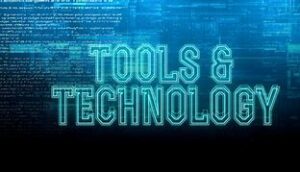
We have a system that we use, it’s a proprietary system. We take your finances, and we plug those in. It’s a very confusing spreadsheet-looking format. But all of that information is great information for us. It gives us a chance to really kind of dig into what’s working, what’s not. and that leads to our forecast, our budgets give us our scoreboard, which has different colors so that, we can be as very “surfacey” as people want.
Or we can get very nitty gritty. We can get down into the actual numbers and look at very specific things to find, where we need to tweak, and what we need to fix on that. I think everybody should have some system like that. I’ve got no problem with QuickBooks, Xero, or any of those. I know a lot of people use those. They do have good controls, in there. But it’s like anything else.
You know, if you don’t know how to ride a bicycle, then a bicycle doesn’t do you any good, right? And so, if you have controls in place, you know how to use your tools, your technology. I think a lot of times we can get stuck in the shiny new software and like, Oh my God, it’s amazing! It’s gonna do everything. If your software works for you, use your software.
Ah, the shiny object syndrome. It’s so easy to fall victim to the latest technology, being enamored by its cool features. But as Byron says, if the accounting software you’re using is working for you, then there’s no need to necessarily change it. This is something that’s covered in a course offered through his company called, The What If Plan.
The easiest way to find it is TheWhatIfPlan.com. It’s a pdf course that allows people that are interested in starting a business or maybe have already started a business and have some questions at the entry level. It walks you through the thought process from, Hey, I’ve got a great idea, or, Hey, I love my job, but I want to do it for myself, not for somebody else. How do I turn this into a business?
He walks you through that process, talking about maybe having a partner, taking on investors, things of that nature, walks you through creating the entity structure that works for you, works for the business setting up those controls, some of those early level SOPs, things of that nature that need to occur.
It walks you through that process and takes something that can be kind of confusing and daunting for a lot of people and breaks it down into a very simplistic format, which we feel has been a big help for a number of people to get the ball rolling. cuz a lot of people love the idea of having a small business, but the idea of creating it and doing all the paperwork and the operation, all that stuff can be very overwhelming. So, we’ve tried to break this down into a pretty simple format, that answers a lot of questions that people have.
And if you need additional information or you just wanna reach out or anything like that, our website is on there. Always happy to take a quick phone call for somebody if they just need, a little bit of advice or even a push. I can tell you that there’s nothing better than owning your own business. It’s amazing. I love it. I don’t have any problem working for other people, but I sure do love working for myself!
Amen to that, Byron! And I can vouch for The What If Plan. It’s a great guide to some basic things that all small businesses should have in place. Speaking of resources, Byron shared some additional things.
There are a lot of great books out there. I’m a big fan of EOS Traction. They have a good storyline. I think Good to Great is a great one. If you’re having trouble with marketing there are a couple, of great books, but Raving Fan is one of my favorites. It just really talks about, going above and beyond for your customers to create that raving fan, that person that just can’t wait to tell people about your business and how great you are. I have a big ego, so that works really well for me.
The One Thing is amazing if you’re having difficulty finding what you want to do or if you feel like your business is going in multiple directions. Man, I read all the time. I’m such a nerd. But there are so many amazing books out there. I will say this, if somebody’s having a problem and they’re looking for a book that may help them, I’ve read so many of ’em, shoot me a message on Facebook or Instagram or hit me up on the website, whatever, say, Hey, this is my issue. Give me a book. I’ve read so many, I probably will know what solves it. Reading is probably the best thing you can do for your business.

It’s so helpful. and I think that even if you read something that you’ve read before, you’re gonna be at a different place in your business when you’re reading it that second or third time. And you’re gonna get something different out of it. And so constantly educate yourself.
So Byron’s shared some books, but wait there’s more! He also has a video-based course he is working on. It’s not out yet, but the best way to find out when it will launch is to start following him now on Facebook at CFO-AF. That’s actually the best way to connect and interact with him.
Byron, thank you so much for being so generous with your resources. I appreciate you taking the time to share the benefits of working with a fractional CFO as well as schooling us on accounting strategies for crypto, NFTs, and the metaverse!
I appreciate you having me on. This was a blast! I love talking about finance, and so, if I get a chance to talk about it and, and people don’t fall asleep on me I feel pretty good about myself.
Well, thank you for being so lively and entertaining too. It’s much appreciated!
You made it very easy. thank you for hosting and having me on. I really did have a blast. This was a lot of fun.
Let’s give it up for Byron Wolfe everybody! If your head is ready to explode from all this talk about NFTs, cryptocurrency, and the Metaverse, don’t worry! We’ve got your back! I recommend checking out some articles we’ve curated for you in the show notes. They provide a crash course on those topics.
You can access the show notes in the description of this episode wherever you’re listening to this show. You can also get them at BusinessInfrastructure.TV. Again, that’s BusinessInfrastructure.TV.

Thank you so much for listening! If you enjoyed this episode, then subscribe to the show and leave a five-star rating and review wherever you’re listening.
So, you just heard from an accountant and finance guru. Well coming up in the next episode, you’ll hear from an attorney who also applies law for small businesses in an intriguing way.
As you continue navigating the operational challenges of managing a fast-growing small business, just remember to stay focused and be encouraged. This entrepreneurial journey is a marathon and not a sprint. Don’t grow alone! We’re here to support you so don’t hesitate to reach out to us.
This podcast was written, produced, and narrated by me, Alicia Butler Pierre. Audio editing by Olanrewaju Adeyemo. The original score and sound design by Sabor! Music Enterprises
This is the Business Infrastructure – Curing Back-Office Blues podcast.


